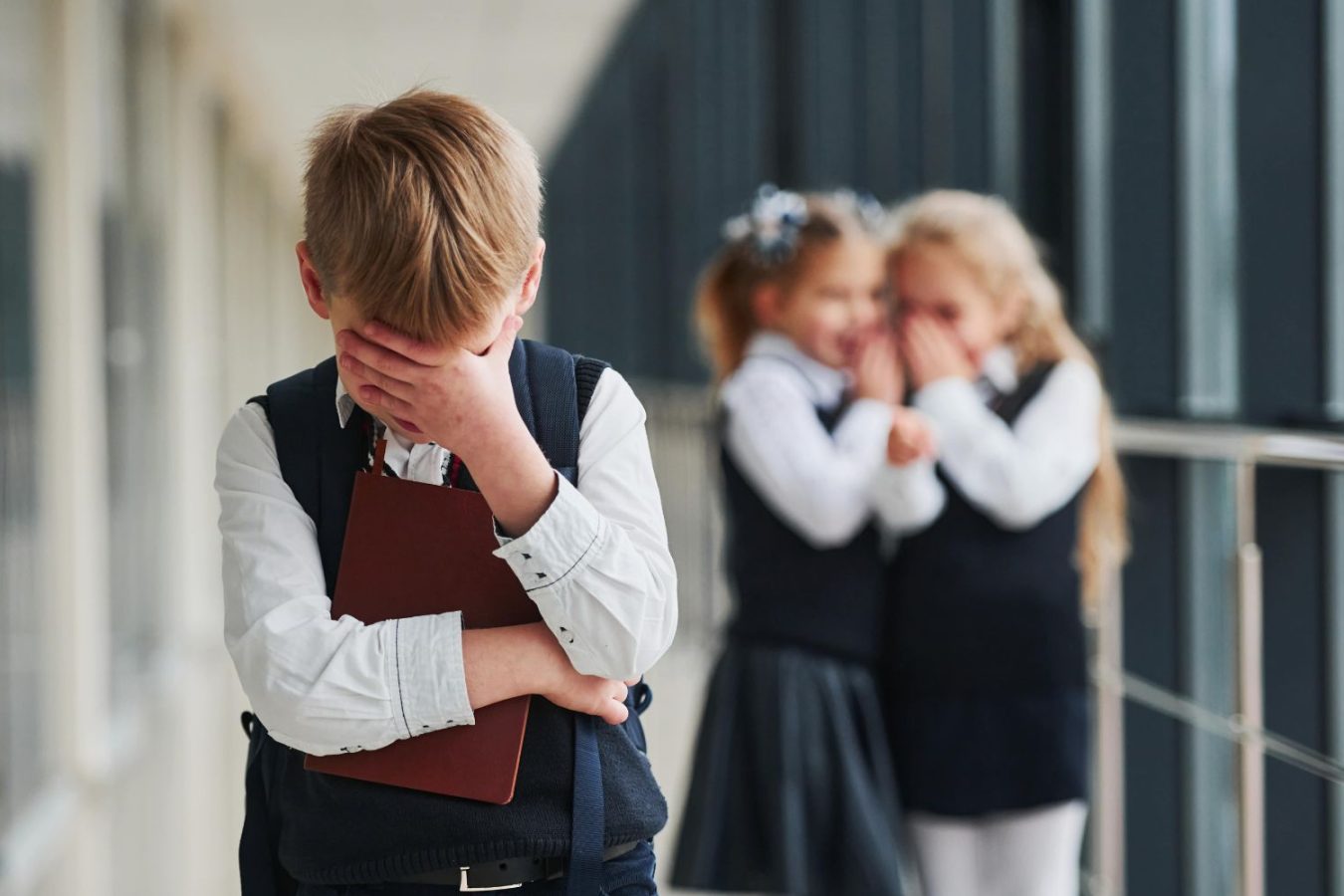
Julie Inman Grant, the Commonwealth’s eSafety Commissioner, urges parents to be vigilant as part of a society-wide response to protect children in the digital era, in this interview with Shane Green.
Julie Inman Grant, the person charged with the nation’s cyber safety leadership, has set down clear challenges for parents, schools and society to help guide young people through the many pitfalls of the digital era.
In an interview with The Parents’ Website, she offers a stark reality check for parents trying to guide their children through the digital age.
‘I personally feel we are about 10 years behind where our kids are in terms of the use of technology,’ says Ms Inman Grant, the Commonwealth’s eSafety Commissioner.
‘I think there’s a real disconnect between what parents understand their kids are doing and what they’re actually doing.’
An example of that gulf in understanding emerged in a recent study released by the Office of the eSafety Commissioner. Children as young as eight have been on social media sites sharing personal information, such as their full names, addresses and phone numbers.
That begs the question, Ms Inman Grant says, why are children as young as eight on social media, when the guidance says the minimum age should be 13?
Cyberbullying, online predators, ‘sexting’, and image-based abuse (such as so-called ‘revenge porn’) are among the concerning issues that young people confront.
Ms Inman Grant notes the good news from the survey was that 61 per cent of teenagers said they were using privacy settings.
‘It’s not all bleak,’ says Ms Inman Grant, ‘but I don’t think we’ve got a consistent understanding that every parent and every school has a role to play. However, the best initial intervention point is absolutely with parents at home.’
A mother of three, Ms Inman Grant knows parents lead busy lives. ‘I think we’re all somewhat guilty of using devices as the digital babysitter, say, “Here, take my phone, or take my iPad”. And, this technology usage is often unaccompanied without the parents engaging with their kids,’ she says.
‘But we have to continue to be vigilant about what our kids are doing online and have those conversations early and often.’
Support for parents
To support this vigilance, the eSafety Office has developed iParent, an excellent online resource for parents that provides information and tips for keeping children safe online.
‘In our generation, our parents talked to us about stranger danger,’ she says. ‘Talking to our kids about stranger danger in the digital age is even more important, because we can’t always tell who’s on the other side of the game or the chat. If a strange man sits next to your child at a bus stop and starts talking to them, a kid will innately know that there’s something a little bit odd about that.’
But with interactive games such as Minecraft or apps like Musical.ly, she says, you can’t always tell who’s engaging in private conversations with your children or spurring them on. ‘Kids don’t always have the frontal lobe development or the maturity and judgment to be able to ask those questions if they’re navigating these services alone.’
‘If kids are using their devices unencumbered, parents need to be checking their privacy settings, particularly if they’re unable to actively monitor their use.’
If parents aren’t having those conversations, the next catchment area is schools. This is because online safety messages need to be continually reinforced—as new services and technology surface, so do the ways these services can be misused.
She is encouraged by schools teaching digital literacy and ethics, but she knows the challenges educators face.
‘Teachers are having to confiscate phones where kids are actually surfing for porn in the classroom,’ she says. ‘These are things that teachers probably aren’t prepared for, that they didn’t sign up for.’
School counsellors are also having to deal with some of the terrible mental and psychological impacts that emerge from cyberbullying or sharing of intimate images.
The eSafety Office has a range of resources available to support schools and teachers. For schools that don’t have programs in place, there is a certification program for trainers to go into schools.
New penalties for unauthorised sharing of images
The Australian Government will be considering the introduction of a civil penalties regime for the unauthorised sharing of intimate images − in some cases, images that were shared when people were in a relationship. These changes will seek to give the eSafety Office more powers to assist victims whose images are shared without their consent and with malicious intent.
Last year, there was community outcry over the online forum called ‘Aussie Sluts’, where users were sharing such images, including those of schoolgirls.
‘The one question I had as I was reading all of this coverage is, where are the parents in this debate?’ she says.
‘Where are the school authorities? Who are teaching these young boys respect? Who is talking to them about the devastating impact this has on young girls’ lives? We hear a lot about ‘boys will be boys’ as a way of explaining away bad behaviour. But, in this day and age, I don’t think that answer is going to fly anymore.’
Ms Inman Grant brings more than 25 years’ experience to her role as Commissioner, which she commenced in January.
In the early 90s, her first job out of university was working in Washington, DC for a US Congressman from her hometown of Seattle, who had Microsoft in his district. She was given a combination of social issues and technology as part of her brief.
She went on to work for Microsoft in government relations, just as the internet was coming online, and the US Congress introduced the Communications Decency Act, the first attempt to regulate the internet.
Then came her role in organising the first Online Safety Summit for Children in 1996, before going on to work for Twitter, where she created the Twitter Rules and Tools.
She has been in Australia for almost 17 years, so knows the local context. ‘Now having three children of my own, there’s a heightened personal interest as well.’
Those conversations about safety and respect are part of her everyday life. She recently asked her five-year-old twins and 10-year-old daughter if they were comfortable with her posting their photos on her private social media as a way of ‘testing’ the Office’s #TalkB4Sharing initiative
Her message for parents is to get involved. ‘All families have different values, so the way you approach these discussions might differ,’ she says. But respect is a fundamental shared value that we should all be teaching in the home – and at school.
Like this post? Please share using the buttons located on this page.
sign up for our newsletter

